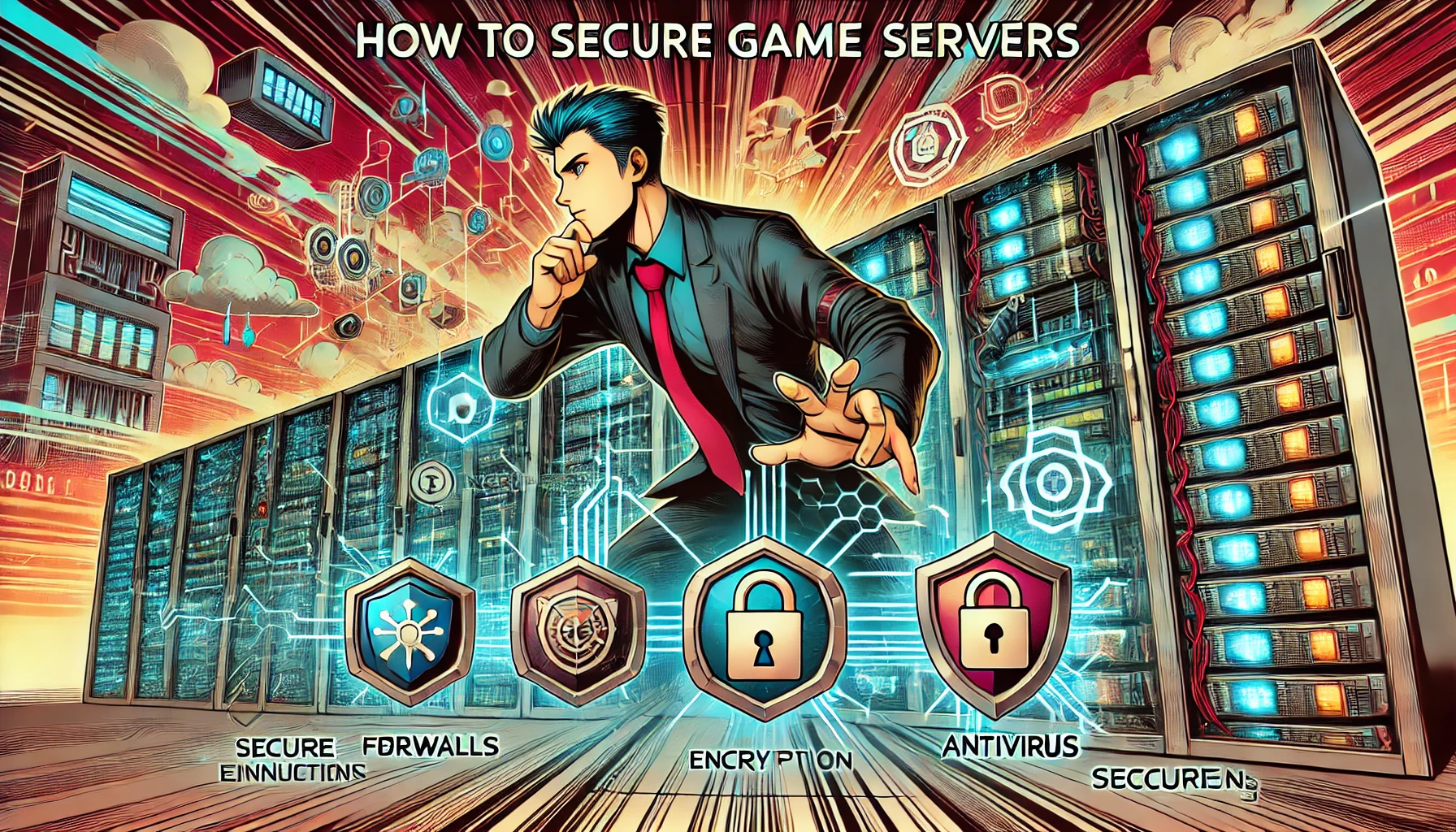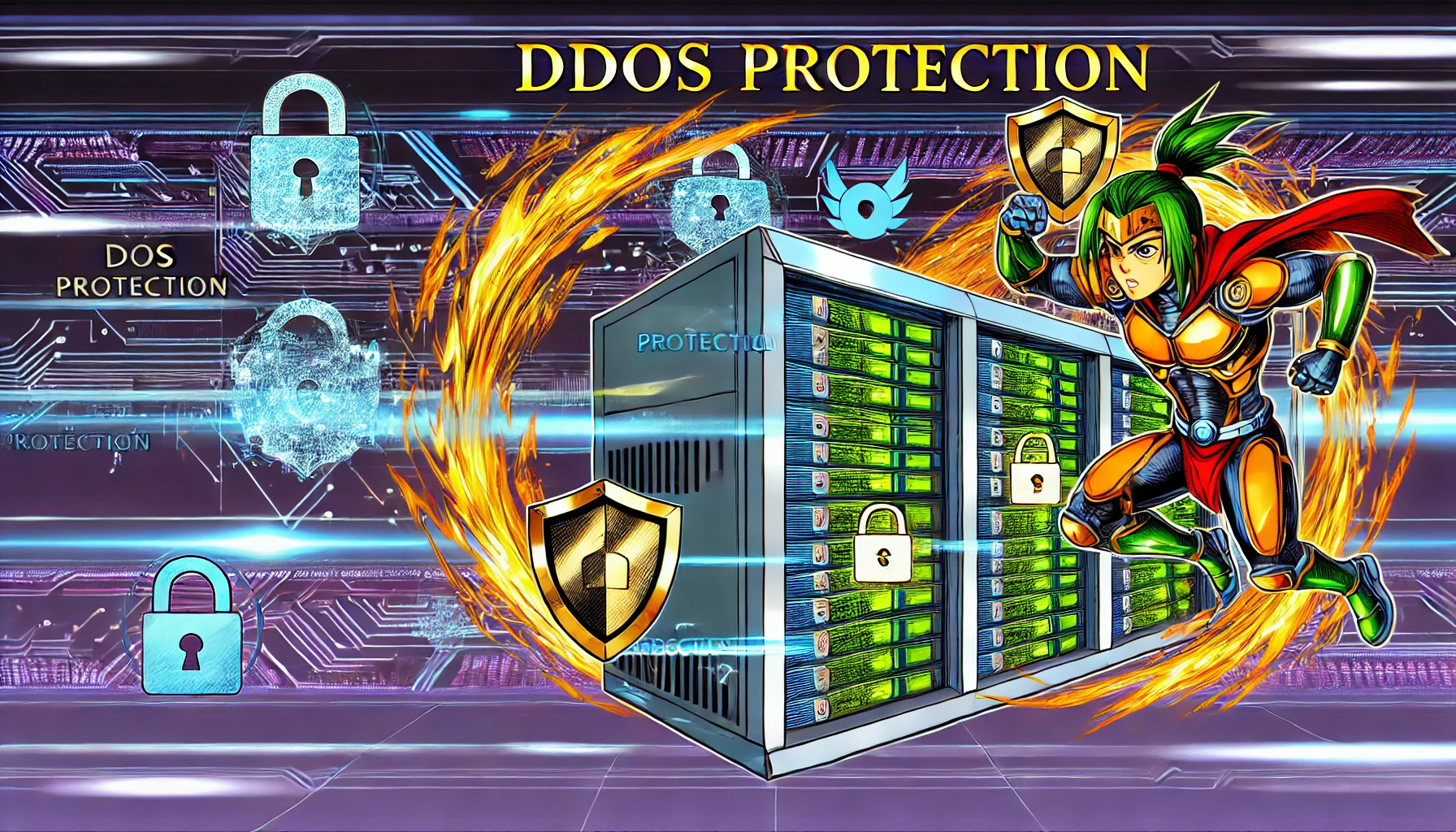Learn how to secure game servers with essential tips and tools. Protect your server from threats and ensure a safe gaming experience. Securing game servers is crucial for providing a safe and enjoyable gaming experience. This guide covers essential strategies and tools to protect your game server from various threats, ensuring optimal performance and security.
Why Securing Game Servers is Important
A secure game server protects both the server and its players from cyber threats. Security breaches can lead to data loss, downtime, and a compromised gaming experience. By securing your game server, you protect sensitive information, maintain server integrity, and ensure a stable gaming environment.
Common Security Threats to Game Servers
DDoS Attacks: Distributed Denial of Service (DDoS) attacks flood the server with traffic, causing it to slow down or crash.
Hacking: Unauthorized access to the server can lead to data theft, server manipulation, and other malicious activities.
Malware: Malicious software can infect the server, leading to data corruption, unauthorized access, and performance issues.
Insider Threats: Trusted users with access to the server can sometimes be a security risk, either intentionally or unintentionally.
Best Practices for Securing Game Servers
To secure your game server, follow these best practices:
- Regular Updates: Keep your server software and operating system updated to patch vulnerabilities.
- Strong Passwords: Use complex, unique passwords and change them regularly.
- Network Security: Implement firewalls and intrusion detection/prevention systems.
DDoS Protection
DDoS attacks are a common threat to game servers. To mitigate these attacks:
- Use DDoS Protection Services: Services like Cloudflare and Akamai provide DDoS mitigation.
- Rate Limiting: Limit the number of requests a user can make in a given time frame.
- Redundancy: Distribute your server resources across multiple locations to absorb the impact of DDoS attacks.
For more information Game Server DDoS Protection.
Firewall Configuration
Firewalls are crucial for protecting your server from unauthorized access:
- Set Up Rules: Define rules to block or allow specific traffic.
- Regular Audits: Review and update firewall rules periodically.
- Use Multiple Firewalls: Implement firewalls at different network layers for added security.
Secure Authentication
Secure authentication mechanisms prevent unauthorized access:
- Two-Factor Authentication (2FA): Adds an extra layer of security by requiring a second form of verification.
- Secure Login Practices: Implement measures like account lockout after multiple failed attempts and CAPTCHA verification.
Regular Software Updates
Keeping your software up to date is critical:
- Automatic Updates: Enable automatic updates for critical software.
- Patch Management: Regularly check for and apply patches to address vulnerabilities.
Data Encryption
Encrypting data ensures it remains secure during transmission and storage:
- In Transit: Use protocols like SSL/TLS to encrypt data between the server and clients.
- At Rest: Encrypt sensitive data stored on the server to protect it from unauthorized access.
Monitoring and Logging
Monitoring and logging help detect and respond to security incidents:
- Monitoring Tools: Use tools like Nagios, Zabbix, and Prometheus to monitor server activity.
- Log Analysis: Regularly review logs to identify unusual activity and potential security threats.
Backup and Recovery Plans
Regular backups and a robust recovery plan are essential:
- Automated Backups: Schedule regular automated backups to ensure data is not lost.
- Disaster Recovery Plan: Develop and test a plan to recover from major incidents quickly.
User Management and Access Control
Managing user permissions and access is crucial:
- Least Privilege Principle: Give users the minimum access necessary to perform their tasks.
- Access Control Lists (ACLs): Define who can access what resources on the server.
Using Security Plugins and Add-ons
Enhance your server’s security with plugins and add-ons:
- Pterodactyl Panel: Use security-focused plugins available for Pterodactyl Panel.
- Multicraft: Implement recommended security add-ons for Multicraft.
Physical Security Measures
Physical security is as important as digital security:
- Data Center Security: Ensure your data center has robust physical security measures.
- Access Control: Restrict physical access to the server hardware.
Educating Users and Administrators
Training users and administrators on security best practices is vital:
- Regular Training: Conduct regular security training sessions.
- Security Policies: Develop and enforce security policies and procedures.
Third-Party Security Services
Consider using third-party services for enhanced security:
- Managed Security Services: Hire experts to manage and monitor your server’s security.
- Security Audits: Regularly conduct third-party security audits to identify and fix vulnerabilities.
Responding to Security Incidents
Having a plan for responding to security incidents is crucial:
- Incident Response Plan: Develop and regularly update an incident response plan.
- Immediate Actions: Know the immediate steps to take following a security breach, such as isolating the affected server and notifying stakeholders.
Future Trends in Game Server Security
Stay ahead of emerging threats with advanced technologies:
- AI and Machine Learning: Use AI to detect and respond to threats in real-time.
- Blockchain Technology: Enhance security with decentralized and tamper-proof data storage solutions.
- Zero Trust Architecture: Implement a zero-trust model where every access request is verified.
FAQs
How important is DDoS protection for game servers?
DDoS protection is critical for maintaining server uptime and performance, preventing disruptions caused by malicious attacks.
What should I consider when choosing game server hosting software?
Consider factors like game support, budget, technical expertise, and available support resources.
Can I use game server hosting software for multiple games?
Yes, many hosting software solutions support multiple games, allowing you to manage different game servers from a single panel.
How can I ensure the best performance for my game server?
Choose hosting software with low latency, efficient resource management, and server locations close to your player base. Regular monitoring and maintenance are also crucial.
Is open-source game server hosting software a good option?
Open-source options like Pterodactyl Panel and Open Game Panel offer high customization and are cost-effective but may require more technical knowledge to set up and manage.
How do I set up a backup and recovery plan?
Schedule regular automated backups and develop a disaster recovery plan that includes steps for quickly restoring data in case of an incident.



Using plugins and add-ons for additional security is something I need to explore more. Pterodactyl Panel sounds like a great option.
Two-factor authentication is a must! I can’t believe how many people still don’t use it. It’s such a simple way to add an extra layer of security.
Encrypting data both in transit and at rest is often overlooked. Thanks for highlighting this! It’s something every server admin should implement ASAP.
Regular software updates are something I always forget. Automating this process is such a good idea. Does anyone have a favorite tool for managing updates?
Regular software updates are something I always forget. Automating this process is such a good idea. Does anyone have a favorite tool for managing updates?
Securing game servers is so crucial! I’ve had my server attacked before, and it was a nightmare trying to recover everything. These tips are really useful for anyone managing a server.
AI and machine learning in game server security sound fascinating. Has anyone here tried implementing these technologies? I’d love to hear about your experience.
Great post! DDoS attacks are becoming more common, and it’s good to see some solid advice on how to mitigate them. Using services like Cloudflare has made a big difference for my gaming community.
AI and machine learning in game server security sound fascinating. Has anyone here tried implementing these technologies? I’d love to hear about your experience.
Physical security is just as important as digital. If someone gets physical access to your server, all the digital security measures can be bypassed.
Securing game servers is so crucial! I’ve had my server attacked before, and it was a nightmare trying to recover everything. These tips are really useful for anyone managing a server.
I’m curious, what are some specific firewall rules you recommend for game servers? Any examples would be super helpful.